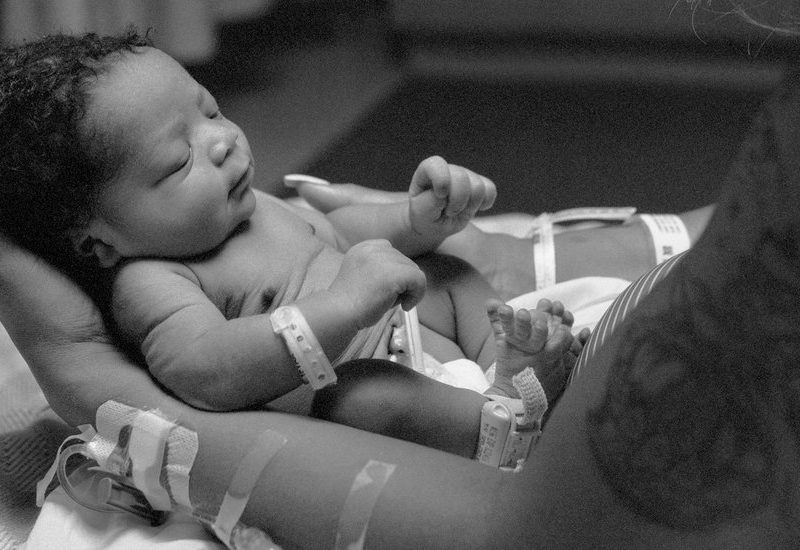
We’ve all seen the headlines and heard the dire statistics. Black women are three to four times more likely to die from pregnancy related causes. Even worse, in New York City black mothers are 12 times more likely to die than white mothers. And, in a national study of five medical complications that are common causes of maternal death and injury, black women were two to three times more likely to die than white women who had the same condition.
I could go on.
But while there are far too many headlines and stories dedicated to blasting the problem, very few have been brave enough to discuss the hard truths about the root causes and possible solutions. Yes, there is a crisis in black maternal health but stoking fear and dread while not discussing the real culprits and the right solutions is equally as dangerous. It is much easier to use complex-sounding medical terms such as preeclampsia, abruptio placentae and post partum hemorrhage than it is to talk about the professional and institutional failures that contribute to these disparities. Using the terms of maternal mortality and morbidity are much simpler than actually tackling bias and racism in medical practices. But the care black women receive is inextricably linked to historical ideas about black women’s bodies, biased cultural norms, and stereotypes and moral judgments about black women as mothers. And these biases are seeping into practice and killing black women.
The first annual Black Maternal Health Week (April 11-17) founded and led by the Black Mamas Matter Alliance is now underway. It’s a critical step in addressing maternal mortality by conducting a public national conversation about it. When we mystify black maternal mortality, it perpetuates an insidious perception that pregnancy and childbirth is dangerous for us when, in fact, birth is not a medical event. It therefore creates a culture of fear that leaves black women vulnerable to control and coercion by others. Black women then begin to feel helpless and hopeless, as if we have no agency in our childbirth experience and are simply subject to all the doom and gloom. And those of us who do survive often leave the hospital traumatized and disempowered, but still feel “lucky to be alive,” so we remain silent.
Take the recent example of the birth experience of tennis star, Serena Williams. In a recent Vogue magazine article, Williams shared how she literally had to save her own life by repeatedly telling her doctors what she needed to live:
“The next day, while recovering in the hospital, Serena suddenly felt short of breath. Because of her history of blood clots, and because she was off her daily anticoagulant regimen due to the recent surgery, she immediately assumed she was having another pulmonary embolism. (Serena lives in fear of blood clots.) She walked out of the hospital room so her mother wouldn’t worry and told the nearest nurse, between gasps, that she needed a CT scan with contrast and IV heparin (a blood thinner) right away. The nurse thought her pain medicine might be making her confused. But Serena insisted, and soon enough a doctor was performing an ultrasound of her legs. “I was like, a Doppler? I told you, I need a CT scan and a heparin drip,” she remembers telling the team. The ultrasound revealed nothing, so they sent her for the CT, and sure enough, several small blood clots had settled in her lungs. Minutes later she was on the drip. “I was like, listen to Dr. Williams!”
But she’s not a doctor, and she shouldn’t have to assert her own medical directives in a hospital.
A 2017 series by Pro Publica highlighted the story of Shalon Irving, an epidemiologist at the Centers for Disease Control and Prevention, who was a lieutenant commander in the Commissioned Corps of the U.S. Public Health Service. Irving, who had B.A. in sociology, two master’s degrees and a dual-subject Ph.D., collapsed and died three weeks after giving birth to her first child at age 36.
A quote in the article said it best: “The fact that someone with Shalon’s social and economic advantages is at higher risk highlights how profound the inequities really are,” said Raegan McDonald-Mosley, the chief medical officer for Planned Parenthood Federation of America, who met Shalon in graduate school at Johns Hopkins University, and was one of her closest friends. “It tells you that you can’t educate your way out of this problem. You can’t health-care-access your way out of this problem. There’s something inherently wrong with the system that’s not valuing the lives of black women equally to white women.” When those women include Serena Williams (who has a white billionaire husband) and Shalon Irving, what hope is there for the rest of us “everyday” women?
The hope is in our communities and in our experiential knowledge as black women. What’s missing from the doom and gloom dialogue are positive, empowering experiences of birth and important details such as where did it happen, who was there, what did they look like and what was said/not said. We don’t need any more dire statistics. We need more context. And in my opinion, we’ve been asking all the wrong “experts.”
Researchers at Black Women Birthing Justice (BWBJ) in California asked the right experts. They conducted a participatory research project between 2011 and 2015, recording narratives and collecting questionnaires for 100 black women who had given birth in California, and who had a child aged five or younger. The story collection also included black women who had lost one or more pregnancies during the same time period.
The sobering yet astounding findings, published in the book, Battling Over Birth (Praeclarus Press), revealed that the relationships between pregnant black individuals and their caregivers are often a source of stress, anger and distress during this vulnerable time. “Rather than viewing physicians, nurses and other medical staff as a trusted team working on their behalf, participants reported numerous incidents of stress and conflict.” These incidents included refusal to listen to women’s wisdom about their bodies, disrespecting women’s physical autonomy, stereotyping based on race, class, age, sexual orientation and marital status, and suppressing advocacy and self-advocacy.
It’s not surprising, therefore, that black women tend to have better outcomes in non-traditional settings, such as in birthing centers and while under the care of midwives and doulas. Per the BWBJ study referenced above, black women reported that by working with a midwife they were more likely to receive care based on trust and listening, and that they felt supported and empowered: “None of our participants who worked with a midwife/doula team reported feeling disempowered or very disempowered, compared to 31 percent of those who were attended by a physician/nurse team.” None.
Research further shows that doula-assisted mothers are less likely to have low birthweight babies, less likely to have a birth complication, and more likely to start breastfeeding. Midwife attended births also have fewer C-section rates — the key medical intervention that leads to many of the death-dealing, post-surgical complications, such as hemorrhage.
Still, the commercial interests and the dominant white-male led medical system have created unnecessary barriers to midwives, doulas and birthing centers—the same resources that have been proven to improve birth outcomes among black women and reduce maternal death. Further, doulas and midwives are not covered by medical insurance or Medicaid in many states, thereby limiting their access to the wealthy. Many of these policy and legal barriers have also been led by a smear messaging campaign that proclaims hospital births are safer than all else, including home births—which is farthest from the truth.
The maternal health care system is clearly broken, and when something is systemically broken, the most vulnerable are often left shattered by its pieces. Historically, our bodies and our babies have not been valued by this system, but black women have the experiential knowledge, cultural history and lived experiences right now to help get us out of this crisis. Black leaders are creating new models of culturally appropriate care for birth and breastfeeding, and we now have midwives and doulas in our community that can be accessed and utilized. It all starts with changing our narrative: We do not have to end up a statistic. We can and we will survive childbirth. We will live to tell our story.
 Kimberly Seals Allers is a writer, author, consultant and internationally recognized advocate for maternal and infant health. She recently founded, Narrative Nation, a non-profit that co-creates narrative-centered, multi-media communication, by people of color for people of color, to catalyze behavioral shifts to eradicate health disparities. Kimberly’s fifth book, The Big Let Down— How Medicine, Big Business and Feminism Undermine Breastfeeding was published by St. Martin’s Press in January 2017. Kimberly is also a Women’s eNews “21 Leaders for the 21st Century” for 2018.
Kimberly Seals Allers is a writer, author, consultant and internationally recognized advocate for maternal and infant health. She recently founded, Narrative Nation, a non-profit that co-creates narrative-centered, multi-media communication, by people of color for people of color, to catalyze behavioral shifts to eradicate health disparities. Kimberly’s fifth book, The Big Let Down— How Medicine, Big Business and Feminism Undermine Breastfeeding was published by St. Martin’s Press in January 2017. Kimberly is also a Women’s eNews “21 Leaders for the 21st Century” for 2018.


